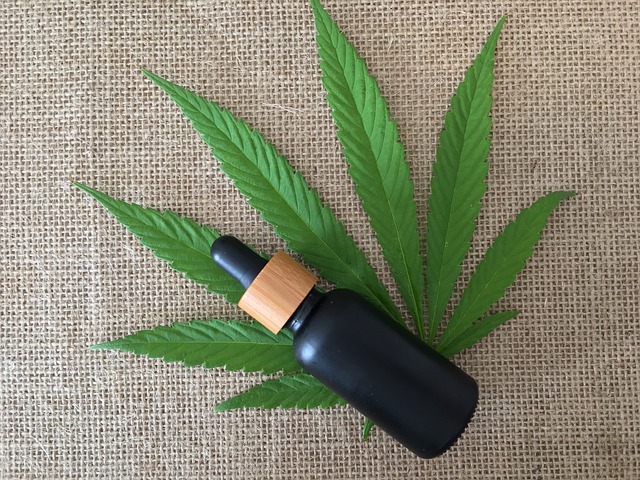
CBD Oil in Alleviating IBS Symptoms
Irritable Bowel Syndrome (IBS) is a common gastrointestinal disorder that affects millions of people worldwide. Characterized by symptoms such as abdominal pain, bloating, gas, diarrhea, and constipation, IBS can significantly impact one’s quality of life. While there is no one-size-fits-all treatment for IBS, many individuals are turning to alternative therapies, with CBD oil emerging as a promising option. In this blog post, we will explore the potential role of CBD oil in alleviating IBS symptoms, supported by current research and anecdotal evidence.
Understanding IBS
IBS is classified as a functional gastrointestinal disorder, meaning that it is related to problems with how the gut functions rather than structural issues. Its exact cause remains unclear, but factors such as stress, diet, gut microbiota, and hormonal changes are believed to contribute to its development. The unpredictability of IBS symptoms can lead to anxiety and frustration, making effective management essential.
Conventional Treatments for IBS
Traditional treatment options for IBS often include dietary modifications, medications, and lifestyle changes. Common recommendations include:
- Dietary Changes: Many patients find relief by following a low-FODMAP diet, which involves reducing fermentable carbohydrates that can cause bloating and gas.
- Medications: Depending on symptoms, doctors may prescribe antispasmodics, laxatives, or anti-diarrheal medications.
- Stress Management: Since stress can exacerbate IBS symptoms, techniques such as cognitive-behavioral therapy, mindfulness, and yoga may help.
Despite these options, many individuals find that conventional treatments do not provide adequate relief, leading them to seek alternative therapies like CBD oil.
What is CBD Oil?
Cannabidiol (CBD) is a compound derived from the hemp plant. Unlike its more famous cousin, THC (tetrahydrocannabinol), CBD is non-psychoactive, meaning it does not produce a “high.” Over the past few years, CBD oil has gained popularity for its potential therapeutic benefits, including its ability to reduce anxiety, alleviate pain, and promote relaxation.
CBD interacts with the body’s endocannabinoid system (ECS), which plays a crucial role in regulating various physiological processes, including digestion. By influencing receptors in the ECS, CBD may help address some of the symptoms associated with IBS.
How CBD Oil May Help Alleviate IBS Symptoms
1. Reducing Inflammation
Some research suggests that CBD has anti-inflammatory properties. Inflammation in the gut can contribute to IBS symptoms, and by potentially reducing this inflammation, CBD may help alleviate discomfort. Studies have shown that cannabinoids can modulate immune responses, which may be beneficial for individuals with inflammatory conditions.
2. Relieving Pain and Discomfort
One of the most debilitating symptoms of IBS is abdominal pain. CBD has been noted for its analgesic (pain-relieving) properties. By interacting with pain receptors in the brain, CBD may help reduce the perception of pain, providing relief for those suffering from chronic discomfort associated with IBS.
3. Managing Stress and Anxiety
Many people with IBS experience heightened levels of stress and anxiety, which can exacerbate their symptoms. CBD is known for its calming effects, and research indicates that it may help reduce anxiety levels. By promoting relaxation and a sense of calm, CBD could indirectly alleviate IBS symptoms triggered by stress.
4. Regulating Gut Motility
IBS is often characterized by irregular bowel movements, whether that be diarrhea or constipation. Some studies suggest that CBD may help regulate gut motility, promoting more consistent and comfortable bowel movements. This effect could be beneficial for individuals struggling with either type of bowel disturbance.
5. Supporting Gut Health
The endocannabinoid system is involved in maintaining gut homeostasis, which is crucial for digestive health. Some research indicates that CBD might support the balance of the gut microbiome, which plays a significant role in digestion and overall health. A healthier gut microbiome can contribute to reduced IBS symptoms. Please visit their webpage to discover interesting facts about CBD oil in alleviating IBS symptoms.

Research and Evidence
While anecdotal evidence supports the use of CBD oil for IBS, scientific research is still in its early stages. A few studies have begun to explore the potential benefits of CBD for gastrointestinal disorders, including IBS.
For instance, a 2019 study published in The Journal of Gastroenterology found that CBD might help reduce inflammation in the gut. Another study highlighted the potential of CBD in managing anxiety and stress, both of which can worsen IBS symptoms. However, more rigorous clinical trials are necessary to fully understand the efficacy and safety of CBD for IBS management.
How to Use CBD Oil
If you’re considering CBD oil as a potential remedy for IBS, it’s important to approach it with caution. Here are a few tips for getting started:
- Consult a Healthcare Professional: Before starting any new treatment, especially if you have existing health conditions or are taking medications, consult with a healthcare provider.
- Start Low and Go Slow: Begin with a low dose of CBD oil and gradually increase it until you find a dosage that works for you. Everyone’s body reacts differently to CBD.
- Choose Quality Products: Look for high-quality, third-party tested CBD products. Ensure that they contain no harmful additives and have accurate labeling.
- Monitor Your Symptoms: Keep track of any changes in your IBS symptoms and overall well-being as you incorporate CBD into your routine.
Conclusion
While CBD oil shows promise as a supportive option for alleviating IBS symptoms, it’s important to remember that it may not work for everyone. The complexity of IBS and its various triggers means that a multifaceted approach, including dietary changes, stress management, and lifestyle adjustments, remains crucial. As research continues to evolve, CBD oil may become an integral part of a holistic strategy for managing IBS. If you’re considering trying CBD, be sure to consult with a healthcare professional to determine the best course of action for your individual needs.









